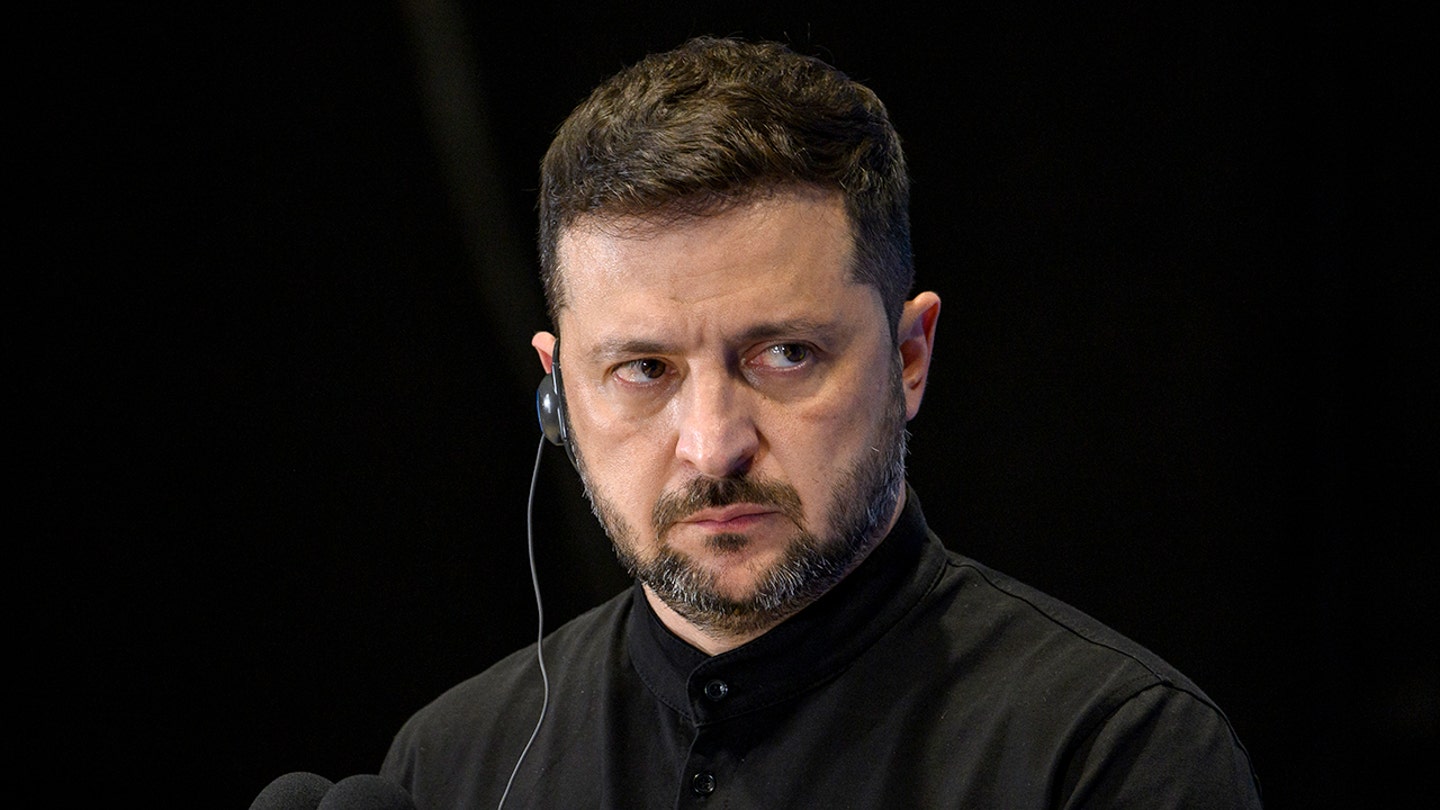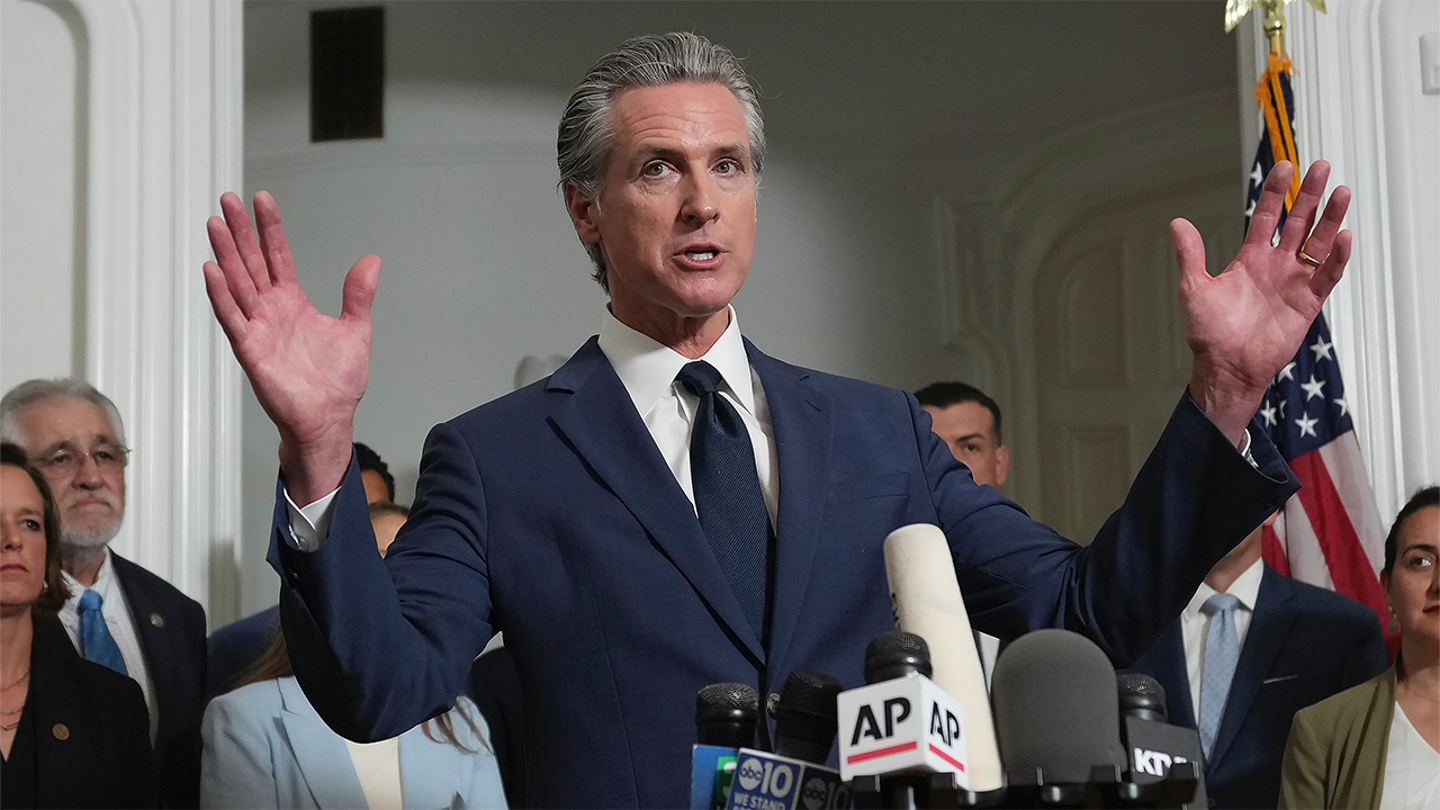
Mike Castle, Delaware's last Republican governor and congressman, dead at 86
Entities mentioned:
- Mike Castle: Duty, Public service, Legacy
- Delaware Republican Party: Loyalty, Recognition, Unity
- Joe Biden: Ambition, Power, Legacy
- Gene Truono: Respect, Duty, Unity
- Matt Meyer: Duty, Recognition, Unity
Article Assessment:
Credibility Score: 85/100
Bias Rating: 45/100 (Center)
Sentiment Score: 60/100
Authoritarianism Risk: 20/100 (Strongly Democratic)
Bias Analysis:
The article presents a balanced view of Castle's career, highlighting achievements without overt partisan framing. It includes perspectives from both Republican and Democratic sources, maintaining a centrist approach to reporting.
Key metric: Political Polarization Index
As a social scientist, I analyze that this article highlights the career of Mike Castle, a moderate Republican known for bipartisan work and fiscal conservatism. His approach to politics, characterized by centrism and willingness to work across party lines, stands in contrast to the increasing polarization in American politics. Castle's legacy, particularly his work on commemorative coin programs and education reform, demonstrates how politicians can achieve lasting impact through collaborative efforts. The article's focus on Castle's moderate stance and successful career until his 2010 primary loss may indicate a shift in the political landscape towards more partisan positions, potentially impacting the Political Polarization Index by reminding readers of a less divisive political era.

Trump reveals his game plan for meeting with Putin in Alaska: 'It's like chess'
Entities mentioned:
- Donald Trump: Ambition, Power, Legacy
- Vladimir Putin: Power, Control, Self-preservation
- Volodymyr Zelenskyy: Determination, Justice, Self-preservation
- Brian Kilmeade: Curiosity, Professional pride
Article Assessment:
Credibility Score: 70/100
Bias Rating: 55/100 (Center)
Sentiment Score: 45/100
Authoritarianism Risk: 35/100 (Generally Democratic)
Bias Analysis:
The article presents multiple perspectives, including quotes from Trump, Putin, and Zelenskyy, providing a somewhat balanced view. However, there's slightly more focus on Trump's statements and plans, which may indicate a slight center-right lean.
Key metric: International Diplomacy Effectiveness
As a social scientist, I analyze that this article highlights a critical juncture in international diplomacy, focusing on Trump's approach to negotiations between Russia and Ukraine. The framing of the talks as 'chess' suggests a strategic, calculated approach to diplomacy. Trump's disclosure of potential land swap negotiations, despite Zelenskyy's opposition, indicates potential discord among allies. The article presents contrasting views: Trump's optimism about a deal versus Zelenskyy's skepticism, reflecting the complex nature of the conflict resolution process. The mention of potential sanctions against Russia demonstrates the use of economic leverage in diplomatic negotiations. This situation could significantly impact global geopolitical stability and the effectiveness of U.S. foreign policy in conflict resolution.

Putin praises Trump’s ‘sincere’ peace efforts, signals possible US-Russia nuclear deal
Entities mentioned:
- Vladimir Putin: Power, Influence, Control
- Donald Trump: Legacy, Recognition, Ambition
- Volodymyr Zelenskyy: Self-preservation, Unity, Determination
- Keir Starmer: Duty, Influence, Unity
- Friedrich Merz: Duty, Influence, Unity
- Emmanuel Macron: Influence, Unity, Leadership
- JD Vance: Duty, Influence, Professional pride
- Gen. Keith Kellogg: Duty, Professional pride, Security
Article Assessment:
Credibility Score: 75/100
Bias Rating: 45/100 (Center)
Sentiment Score: 55/100
Authoritarianism Risk: 35/100 (Generally Democratic)
Bias Analysis:
The article presents multiple perspectives, including those of Russia, the US, and Ukraine, indicating an attempt at balanced reporting. However, there's a slight emphasis on Western viewpoints and actions, which may suggest a subtle Western-centric framing.
Key metric: International Relations and Diplomacy
As a social scientist, I analyze that this article highlights a potential shift in US-Russia relations, centered around nuclear arms control and the ongoing conflict in Ukraine. The upcoming summit between Trump and Putin represents a critical juncture in international diplomacy, with potential ramifications for global security. Putin's praise of US efforts and hints at a possible nuclear deal suggest a strategic positioning ahead of the talks. However, Zelenskyy's skepticism indicates ongoing tensions and complexities in resolving the Ukraine conflict. The involvement of other world leaders and the 'Coalition of the Willing' underscores the global significance of these negotiations. The article suggests a delicate balance of power dynamics, with both Trump and Putin potentially seeking diplomatic victories for domestic and international gain.

Social Security is 90 years old. We are making it smarter, better, faster under Trump
Entities mentioned:
- Donald Trump: Loyalty, Power, Legacy
- Social Security Administration: Efficiency, Duty, Professional pride
- Commissioner: Ambition, Determination, Recognition
Article Assessment:
Credibility Score: 55/100
Bias Rating: 75/100 (Lean Right)
Sentiment Score: 85/100
Authoritarianism Risk: 35/100 (Generally Democratic)
Bias Analysis:
The article leans right, consistently praising Trump administration efforts without presenting alternative viewpoints or criticisms. The language used is overwhelmingly positive towards current leadership, indicating a clear partisan slant.
Key metric: Social Security System Efficiency
As a social scientist, I analyze that this article presents a highly positive view of the Social Security Administration's progress under the Trump administration. The Commissioner highlights various improvements in service delivery, wait times, and technological advancements. The article emphasizes modernization efforts and a commitment to future generations, suggesting a focus on long-term sustainability of the Social Security system. However, the overwhelmingly positive tone and lack of mention of challenges or criticisms raises questions about the balanced nature of the information presented.

Newsom unveiling California redistricting effort to counter Trump-backed push in Texas
Entities mentioned:
- Gavin Newsom: Ambition, Competitive spirit, Power
- Donald Trump: Power, Control, Influence
- California Democratic Party: Power, Control, Competitive spirit
- Republican Party: Power, Control, Self-preservation
- Arnold Schwarzenegger: Justice, Duty, Legacy
- National Republican Congressional Committee: Power, Control, Competitive spirit
Article Assessment:
Credibility Score: 65/100
Bias Rating: 55/100 (Center)
Sentiment Score: 35/100
Authoritarianism Risk: 60/100 (Mixed/Neutral)
Bias Analysis:
The article presents views from both Democratic and Republican sides, including criticisms of Newsom's plan. However, it gives more space to Newsom's perspective and motivations, slightly tilting the overall tone towards a center-left position.
Key metric: Electoral Competitiveness
As a social scientist, I analyze that this article highlights a significant escalation in the ongoing battle over redistricting and its impact on electoral competitiveness. Governor Newsom's aggressive response to Republican redistricting efforts in Texas represents a departure from California's previous commitment to non-partisan redistricting. This move could potentially alter the balance of power in the House of Representatives, affecting national policy-making. The use of mid-decade redistricting as a political tool raises concerns about the stability and fairness of electoral systems, potentially undermining voter trust in democratic processes. The article also underscores the increasing nationalization of state-level politics, with state actions being framed as direct responses to federal-level political maneuvers.

Could Trump's meeting with Putin be the next Reagan-Gorbachev moment?
Entities mentioned:
- Donald Trump: Power, Legacy, Influence
- Vladimir Putin: Control, Power, Self-preservation
- Lindsey Graham: Loyalty, Influence, Duty
- Ronald Reagan: Legacy, Peace, Freedom
- Mikhail Gorbachev: Reform, Peace, Unity
- Fred Fleitz: Loyalty, Professional pride, Influence
- Dan Hoffman: Professional pride, Wariness, Security
- Peter Rough: Professional pride, Influence, Analysis
- Volodymyr Zelenskyy: Self-preservation, Unity, Duty
- Karoline Leavitt: Duty, Loyalty, Professional pride
Article Assessment:
Credibility Score: 75/100
Bias Rating: 55/100 (Center)
Sentiment Score: 55/100
Authoritarianism Risk: 35/100 (Generally Democratic)
Bias Analysis:
The article presents multiple viewpoints, including both supportive and skeptical perspectives on the Trump-Putin meeting. While it leans slightly towards optimism about Trump's approach, it balances this with expert caution, maintaining a relatively centrist stance.
Key metric: Diplomatic Relations
As a social scientist, I analyze that this article highlights a potential shift in US-Russia relations, drawing parallels between the upcoming Trump-Putin meeting and the historic Reagan-Gorbachev talks. The comparison suggests a possible de-escalation of tensions, particularly regarding the Ukraine conflict. However, experts express skepticism about Putin's willingness to end the war, unlike Gorbachev's reformist approach. The article emphasizes Trump's 'peace through strength' strategy, suggesting that economic leverage and diplomatic pressure could influence the outcome. This meeting could significantly impact US diplomatic relations, potentially altering the course of the Ukraine conflict and broader US-Russia dynamics. The emphasis on communication with European allies post-meeting indicates a multilateral approach to potential outcomes.

Russian oligarch’s $325M seized superyacht heads to auction as Trump–Putin summit nears
Entities mentioned:
- Suleiman Kerimov: Greed, Power, Self-preservation
- Donald Trump: Power, Legacy, Influence
- Joe Biden: Justice, Security, Influence
- Vladimir Putin: Power, Control, Ambition
- U.S. Government: Justice, Security, Influence
- KleptoCapture Task Force: Justice, Duty, Professional pride
Article Assessment:
Credibility Score: 75/100
Bias Rating: 45/100 (Center)
Sentiment Score: 55/100
Authoritarianism Risk: 30/100 (Generally Democratic)
Bias Analysis:
The article presents a relatively balanced view, providing factual information about the yacht seizure and auction process. While it leans slightly towards justifying U.S. actions, it maintains a mostly neutral tone in its reporting.
Key metric: Foreign Policy Effectiveness
As a social scientist, I analyze that this article highlights the U.S. government's efforts to enforce sanctions against Russian oligarchs in response to the invasion of Ukraine. The auction of the $325 million yacht, Amadea, represents a significant milestone in these efforts. This action demonstrates the effectiveness of the KleptoCapture task force in identifying and seizing high-value assets of sanctioned individuals. The timing of the auction, coinciding with a potential Trump-Putin summit, adds a layer of complexity to the situation. It showcases the U.S.'s commitment to maintaining pressure on Russia's elite while potentially engaging in diplomatic efforts. The detailed description of the yacht's luxurious features serves to emphasize the extravagant lifestyles of these oligarchs and potentially justifies the actions taken against them in the public eye. The planned distribution of funds from the sale to various areas, including victim compensation, indicates a attempt to derive some positive outcomes from the seizure. Overall, this event serves as a tangible example of the U.S.'s foreign policy in action, particularly its approach to dealing with Russia and its allies.

Armenia and Azerbaijan leaders seek to ease Russian and Iranian concerns after US-brokered peace deal
Entities mentioned:
- Nikol Pashinyan: Unity, Security, Legacy
- Ilham Aliyev: Unity, Influence, Legacy
- Donald Trump: Influence, Legacy, Recognition
- Russia: Influence, Control, Wariness
- Iran: Security, Influence, Wariness
- Armenia: Security, Unity, Self-preservation
- Azerbaijan: Unity, Security, Influence
- United States: Influence, Power, Control
- Armenian Apostolic Church: Loyalty, Righteousness, Moral outrage
Article Assessment:
Credibility Score: 75/100
Bias Rating: 55/100 (Center)
Sentiment Score: 60/100
Authoritarianism Risk: 35/100 (Generally Democratic)
Bias Analysis:
The article presents multiple perspectives, including those of Armenia, Azerbaijan, Russia, and Iran, indicating an attempt at balanced reporting. However, there's a slight emphasis on the positive aspects of US involvement, which may suggest a subtle pro-Western lean.
Key metric: US Global Influence Index
As a social scientist, I analyze that this article showcases a significant shift in regional power dynamics in the South Caucasus. The US-brokered peace deal between Armenia and Azerbaijan represents a strategic advancement of American influence in a traditionally Russian-dominated region. This development likely improves the US Global Influence Index by establishing a foothold through the TRIPP project. The deal challenges Russia's and Iran's regional influence, potentially altering geopolitical balances. However, it also risks domestic instability in Armenia and regional tensions with Iran. The agreement's long-term success depends on managing these challenges and maintaining the delicate balance between regional powers.

Facts First
Entities mentioned:
- Donald Trump: Power, Influence, Legacy
- Joe Biden: Duty, Legacy, Unity
- Kamala Harris: Ambition, Recognition, Unity
- Nikki Haley: Ambition, Competitive spirit, Recognition
- Republican Party: Power, Control, Loyalty
- Democratic Party: Unity, Justice, Control
- Voters: Security, Freedom, Self-preservation
Article Assessment:
Credibility Score: 75/100
Bias Rating: 45/100 (Center)
Sentiment Score: 45/100
Authoritarianism Risk: 25/100 (Generally Democratic)
Bias Analysis:
The articles attempt to present diverse voter perspectives from various regions and demographics. While there's a slight lean towards examining Democratic challenges, the content also covers Republican voter sentiments extensively.
Key metric: Voter Engagement and Political Polarization
As a social scientist, I analyze that this collection of articles highlights the deep political divisions and shifting voter sentiments in key battleground states. The content demonstrates how various demographic groups, including blue-collar workers, Hispanic voters, and suburban residents, are responding to major political figures and policy issues. The articles reveal a complex political landscape where traditional party loyalties are being tested, and voters are grappling with concerns about age, economic impacts, and social issues. This ongoing voter engagement and the apparent polarization suggest a highly contested and potentially volatile political environment leading up to the 2024 election.
- Read more about Facts First
- Log in to post comments

Do Democrats have a Zohran Mamdani problem?
Entities mentioned:
- Zohran Mamdani: Ambition, Recognition, Influence
- Democratic Party: Self-preservation, Power, Unity
- Republican Party: Competitive spirit, Power, Control
- Barack Obama: Influence, Legacy, Unity
Article Assessment:
Credibility Score: 75/100
Bias Rating: 45/100 (Center)
Sentiment Score: 50/100
Authoritarianism Risk: 25/100 (Generally Democratic)
Bias Analysis:
The article presents a balanced view, offering both positive and negative aspects of Mamdani's candidacy and its potential impact. It cites various polls and presents multiple perspectives, indicating an effort to maintain neutrality.
Key metric: Democratic Party Approval Rating
As a social scientist, I analyze that Zohran Mamdani's rise to prominence as the Democratic nominee for New York City mayor poses both opportunities and challenges for the Democratic Party. His socialist policies and controversial past statements on issues like policing and Israel could potentially alienate moderate voters and damage the party's image. However, polling suggests that some of his progressive ideas are popular among voters, and the evolving public opinion on issues like Israel might mitigate some potential negative impacts. The Democratic Party's response, including hesitancy from some members to endorse him, reflects concern about how Mamdani's candidacy might affect their broader electoral prospects. The Republicans' eagerness to use Mamdani as a campaign tool against Democrats nationally indicates they see his candidacy as a vulnerability for their opponents. The article suggests that while Mamdani's socialist label and some past statements could be problematic, the impact on the Democratic Party will largely depend on how he campaigns and potentially governs, as well as how effectively he moderates his image and message.
- Read more about Do Democrats have a Zohran Mamdani problem?
- Log in to post comments